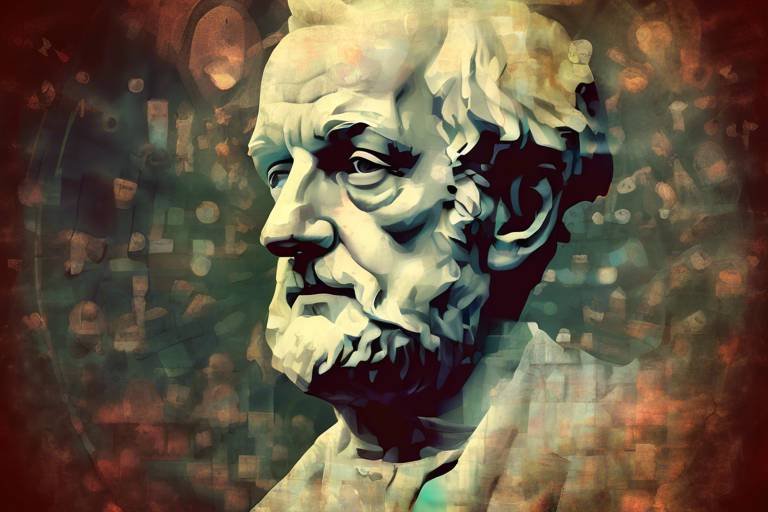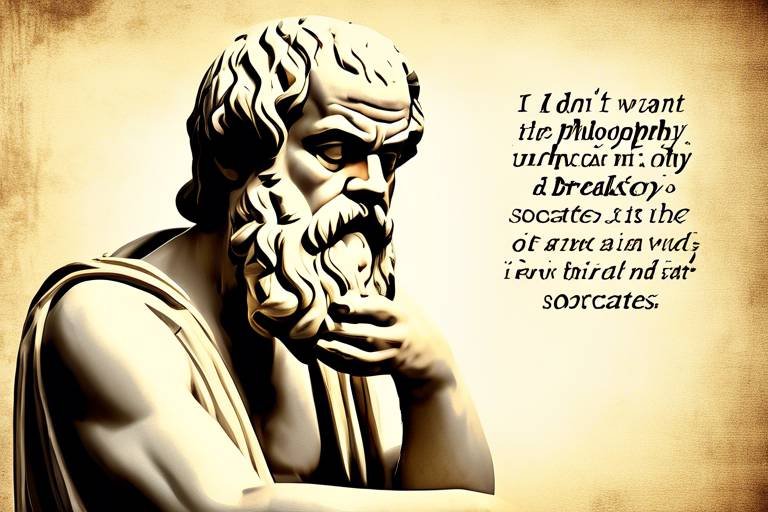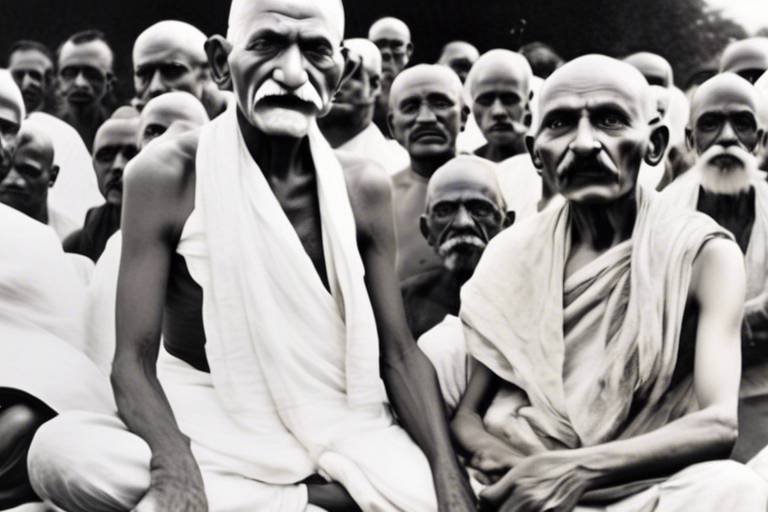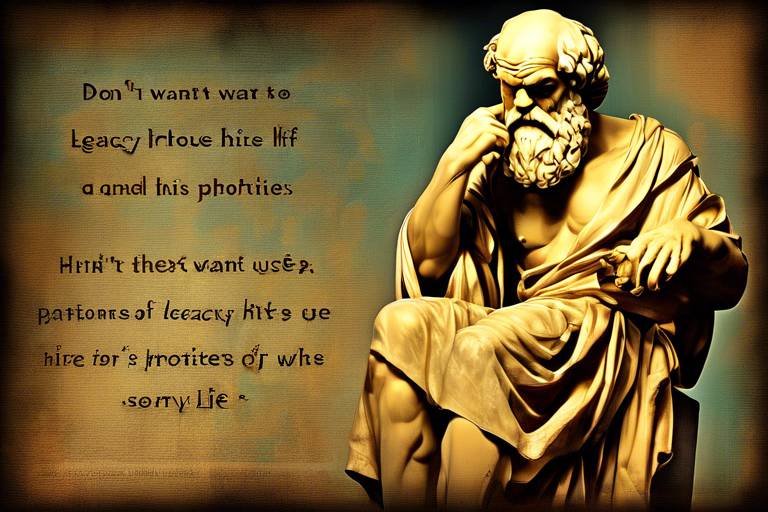The Radical Philosophies of Angela Davis
Angela Davis is not just a name; she is a symbol of resistance and a beacon of hope for countless individuals fighting against injustice. Her radical philosophies have transcended generations, resonating deeply within the realms of race, gender, and class. Davis's work is a tapestry woven from her experiences as a Black woman, an activist, and a scholar, reflecting a profound understanding of the systemic issues that plague our society. In this article, we will explore the transformative ideas and theories of Angela Davis, delving into her views on the prison-industrial complex, intersectionality, and the global fight for justice.
Born in 1944 in Birmingham, Alabama, Davis grew up in a racially segregated environment that shaped her worldview. The harsh realities of the Jim Crow South ignited her passion for social justice from a young age. As she navigated through the tumultuous 1960s and 1970s, a period marked by civil rights movements and anti-war protests, Davis emerged as a formidable voice advocating for change. Her experiences during this era fueled her radical philosophies, which challenge the status quo and call for a complete overhaul of oppressive systems.
One of the most significant aspects of Davis's philosophy is her emphasis on intersectionality. She argues that to understand the struggles faced by individuals, one must consider the interconnectedness of various identities, including race, gender, and class. This holistic approach is vital in addressing the complexities of social justice. For Davis, the fight against oppression cannot be compartmentalized; it requires a comprehensive understanding of how different forms of discrimination intersect and exacerbate each other. This perspective is particularly crucial for marginalized communities, who often face multiple layers of oppression.
In her work, Davis has been a vocal critic of traditional feminist movements that often overlook the unique challenges faced by women of color. She advocates for a more inclusive feminism that recognizes the importance of racial and economic justice. Davis argues that mainstream feminism has historically centered the experiences of white women, neglecting the voices of Black women and other marginalized groups. Her critiques have paved the way for the development of Black feminism, which emphasizes the need for activism that addresses the specific struggles of Black women in society.
As we delve deeper into Davis's philosophies, it becomes clear that her vision extends beyond the confines of the United States. She is a prominent figure in the prison abolition movement, advocating for the dismantling of the prison-industrial complex. Davis argues that prisons are not the solution to crime but rather a symptom of deeper societal issues. Her vision for a society without prisons is radical yet thought-provoking, challenging us to rethink how we address crime and punishment. She posits that true justice can only be achieved through transformative practices that address the root causes of criminal behavior, rather than through punitive measures.
In summary, Angela Davis's radical philosophies are a call to action for all of us. They encourage us to critically examine the systems of oppression that shape our lives and to strive for a more equitable society. Her work is not merely theoretical; it is grounded in real-world experiences and struggles, making it all the more powerful. As we continue to grapple with issues of race, gender, and justice, Davis's ideas remain as relevant today as they were decades ago.
- Who is Angela Davis? Angela Davis is a renowned activist, scholar, and author known for her work in the civil rights movement and her advocacy for prison abolition.
- What is intersectionality? Intersectionality is a framework for understanding how various forms of discrimination and oppression intersect and impact individuals differently based on their identities.
- What is Black feminism? Black feminism is a movement that addresses the unique struggles faced by Black women, emphasizing the importance of both racial and gender justice.
- What is the prison abolition movement? The prison abolition movement seeks to dismantle the prison-industrial complex and advocates for alternative forms of justice that address the root causes of crime.

Historical Context of Angela Davis
To truly grasp the radical philosophies of Angela Davis, one must first understand the historical backdrop against which she emerged. The 1960s and 1970s were a tumultuous time in the United States, marked by significant social upheaval and a fervent quest for civil rights. This era was characterized by the rise of various movements aimed at challenging systemic racism, gender inequality, and economic injustice. The civil rights movement was gaining momentum, with figures like Martin Luther King Jr. and Malcolm X leading the charge for racial equality. Meanwhile, the feminist movement was also evolving, pushing back against the traditional roles assigned to women in society.
In this charged atmosphere, Davis's ideas began to take shape. She was influenced by the Black Power movement, which emphasized racial pride and self-determination for Black people. This was not just a fight for civil rights; it was a call to radically transform societal structures that perpetuated inequality. Additionally, the Vietnam War was raging, further fueling anti-war sentiments among the youth and activists. The intersection of these movements created a fertile ground for Davis's radical philosophies, which sought to address the interlocking systems of oppression that marginalized individuals based on race, gender, and class.
Furthermore, the rise of the prison-industrial complex during this period cannot be overlooked. As the government responded to social unrest with increased policing and incarceration, Davis began to critically examine the role of prisons in perpetuating systemic injustices. Her experiences as a scholar and activist during this time shaped her understanding of the complexities surrounding justice and freedom. It's essential to recognize that Davis's radical ideas did not develop in isolation; they were a response to the broader social, political, and cultural movements of her time.
In summary, the historical context of Angela Davis's work is rich and complex. The struggles for civil rights, gender equality, and social justice during the 1960s and 1970s provided a backdrop that significantly influenced her radical philosophies. Understanding this context allows us to appreciate the depth of her contributions and the ongoing relevance of her ideas in today's world.

Intersectionality in Davis's Work
Angela Davis's work is a profound exploration of intersectionality, a term that has become a cornerstone of contemporary social justice discourse. At its core, intersectionality examines how various forms of oppression—such as race, gender, and class—interact and overlap, creating unique experiences of discrimination for individuals. Davis, through her scholarship and activism, has illuminated how these interconnected identities shape the lives of marginalized people. She argues that to truly understand social injustice, one must consider the complex web of factors that contribute to an individual's experience, rather than isolating issues into separate categories.
Davis's perspective on intersectionality is not merely theoretical; it is grounded in her personal experiences and activism. She emphasizes that the struggles of Black women cannot be fully understood through the lens of race or gender alone. Instead, they must be viewed through an intersectional framework that recognizes the influence of economic status, sexual orientation, and historical context. This holistic approach allows for a more nuanced understanding of the challenges faced by individuals at the crossroads of multiple identities.
For instance, consider the experiences of a Black woman living in poverty. Her challenges are not just a result of her race or gender; they are compounded by her socioeconomic status. Davis argues that traditional feminist movements have often overlooked these complexities, focusing primarily on issues that affect white, middle-class women. In contrast, her advocacy for Black feminism seeks to address the unique struggles faced by women of color, highlighting the need for a more inclusive and equitable feminist agenda.
In her writings, Davis often draws attention to the systemic nature of oppression. She asserts that individual experiences of discrimination are not isolated incidents but rather manifestations of larger societal structures that perpetuate inequality. By employing an intersectional lens, Davis encourages activists to recognize the interconnectedness of various social justice movements. For example, the fight against racial injustice cannot be separated from the struggle for gender equality or economic justice. Each movement is intertwined, and progress in one area can lead to advancements in others.
To further illustrate her points, Davis often references historical and contemporary examples of intersectional activism. She highlights how the Civil Rights Movement, while predominantly focused on racial issues, also intersected with the feminist movement, especially as women of color began to assert their voices within the struggle for civil rights. This blending of movements showcases the importance of solidarity and the necessity of addressing multiple forms of oppression simultaneously.
In summary, Angela Davis's exploration of intersectionality challenges us to rethink our understanding of social justice. Her work serves as a powerful reminder that to achieve true equity, we must recognize and address the complex realities faced by individuals who navigate multiple layers of identity. By embracing an intersectional approach, we can foster a more inclusive and effective movement for justice that uplifts all voices, particularly those that have been historically marginalized.
- What is intersectionality? Intersectionality is a framework for understanding how various forms of oppression intersect and impact individuals differently based on their overlapping identities.
- Why is Angela Davis important? Angela Davis is a prominent activist and scholar whose work has significantly influenced feminist theory, prison abolition, and social justice movements globally.
- How does Davis's work relate to modern feminism? Davis critiques mainstream feminism for its lack of inclusivity and emphasizes the importance of addressing issues faced by women of color and those from marginalized backgrounds.
- What is Black feminism? Black feminism is a movement that addresses the unique struggles of Black women, emphasizing the need for an intersectional approach to feminism that considers race, gender, and class.

The Role of Feminism
Angela Davis's contributions to feminist theory are both profound and transformative, reshaping the landscape of feminist discourse. Her critiques of mainstream feminism reveal a critical lens that questions the very foundations upon which traditional feminist movements have been built. Rather than merely advocating for the rights of women in a vacuum, Davis emphasizes the necessity of an inclusive approach that recognizes the diverse experiences and challenges faced by marginalized women, particularly those at the intersection of race, gender, and class.
In her view, traditional feminism often overlooks the unique struggles of women of color, particularly Black women. Davis argues that the feminist movement must evolve to address these disparities, advocating for a more holistic understanding of oppression that incorporates issues of race and economic inequality. This perspective is not just theoretical; it is deeply rooted in her own life experiences as a Black woman and activist. Davis's work illustrates that the fight for women's rights cannot be separated from the broader struggle for racial and economic justice.
One of the most compelling aspects of Davis's feminist philosophy is her insistence on activism as a core component of feminist identity. She believes that feminism should not only be about theoretical discussions but also about action. In her eyes, true feminism is a call to arms, urging individuals to engage in the fight against systemic injustices. This is where Davis's vision diverges sharply from mainstream feminism, which often prioritizes individual achievements over collective action.
To encapsulate her views, Davis identifies several key principles that should guide a more inclusive feminist movement:
- Intersectionality: Recognizing how various forms of oppression overlap and affect women differently.
- Solidarity: Building alliances across different social justice movements to create a unified front against all forms of injustice.
- Activism: Prioritizing grassroots organizing and direct action as essential components of feminist practice.
Through her writings and speeches, Davis challenges feminists to broaden their understanding of what it means to be a woman in today’s society. By incorporating the voices and experiences of those who have been historically marginalized, she calls for a feminist movement that is truly representative of all women. In essence, Davis's work serves as a powerful reminder that the struggle for gender equality is inextricably linked to the fight against racism, classism, and other forms of oppression. Her legacy continues to inspire a new generation of feminists who strive to create a more just and equitable world for everyone.

Black Feminism and Activism
Angela Davis's perspective on Black feminism is not just a theoretical framework; it is a call to action that resonates deeply with the lived experiences of Black women. She argues that the struggles faced by Black women cannot be understood in isolation from the broader societal issues of race, class, and gender. In her view, Black feminism is fundamentally about activism—a relentless pursuit of justice that acknowledges the unique challenges faced by Black women in a patriarchal and racially oppressive society.
Davis emphasizes that Black women have historically been at the intersection of multiple forms of oppression. This intersectionality means that their experiences are shaped not only by their gender but also by their race and socioeconomic status. She argues that traditional feminist movements often overlook these complexities, focusing primarily on the issues faced by white women. This exclusion is not just a gap; it’s a fundamental flaw that undermines the fight for equality. In her words, “I am no longer accepting the things I cannot change. I am changing the things I cannot accept.” This quote embodies the spirit of activism that Davis champions.
In her activism, Davis highlights the importance of solidarity among marginalized groups. She believes that for true liberation to occur, there must be a collective effort that includes the voices of Black women. This call for solidarity is not merely about joining forces; it’s about recognizing and celebrating the unique contributions that Black women bring to the table. Davis often points out that the struggles for racial justice, gender equality, and economic equity are intertwined, suggesting that a victory for one is a victory for all.
Furthermore, Davis's activism is deeply rooted in her own experiences. She recounts her time in the civil rights movement, where she witnessed firsthand the resilience and strength of Black women who fought against systemic oppression. These women were not just participants; they were leaders, thinkers, and strategists. Their contributions laid the groundwork for future generations of activists. For Davis, acknowledging this history is crucial. It’s about giving credit where it’s due and ensuring that the narratives of Black women are not erased from the broader story of social justice.
To understand the essence of Black feminism as articulated by Davis, it’s essential to consider the following key aspects:
- Activism as a Core Principle: Black feminism is inherently activist, focusing on real-world change.
- Intersectionality: Recognizing how race, gender, and class intersect to create unique challenges.
- Solidarity: Emphasizing the importance of collective struggle among marginalized groups.
- Historical Context: Acknowledging the contributions of Black women throughout history.
In essence, Angela Davis's approach to Black feminism is a powerful reminder that activism is not a solo endeavor; it thrives on community, shared experiences, and a commitment to dismantling the structures of oppression. Her work encourages us to look beyond our individual struggles and recognize the interconnectedness of our fights for justice. It challenges us to engage deeply with the complexities of identity and to advocate for a world where every voice is heard, and every struggle is honored.

Critique of Traditional Feminism
Angela Davis's critique of traditional feminism is both profound and necessary. She argues that mainstream feminist movements often overlook the unique struggles faced by women of color, especially Black women. This exclusion is not merely an oversight; it reflects a broader societal tendency to prioritize the experiences and voices of white, middle-class women while marginalizing those from different racial and economic backgrounds. In her view, traditional feminism tends to operate within a framework that is too narrow, focusing primarily on issues like workplace equality and reproductive rights without fully addressing the intersections of race, class, and gender.
Davis emphasizes that feminism must be inclusive and intersectional. She believes that a feminist movement lacking this inclusivity fails to grasp the complexities of identity and the various forms of oppression that women face. For instance, while white women may struggle with gender discrimination in the workplace, Black women often contend with a compounded experience of racism and sexism, which can manifest in both overt and systemic ways. This reality calls for a radical rethinking of feminist strategies to ensure that they are representative of all women's experiences.
Moreover, Davis critiques the tendency within traditional feminism to focus on individual empowerment at the expense of collective action. She posits that true liberation cannot be achieved by simply climbing the corporate ladder or gaining access to the same privileges as men. Instead, Davis advocates for a broader social justice framework that recognizes the interconnectedness of various struggles, including those against racism, economic inequality, and state violence. This perspective is crucial because it highlights the necessity of solidarity among marginalized groups, which can lead to more effective and meaningful change.
To illustrate her points, Davis often draws on historical examples of feminist activism that have successfully integrated issues of race and class. She cites the work of Black women activists who have long fought for justice, not just for themselves but for their communities as a whole. This approach underscores the importance of grassroots organizing and the need to challenge the status quo through collective action. It serves as a reminder that feminism must be about more than just gender; it must also encompass a fight against all forms of oppression.
In summary, Davis's critique of traditional feminism is a call to action for a more inclusive and intersectional approach. By recognizing the diverse experiences of women and challenging the limitations of mainstream feminist discourse, she encourages a movement that is truly representative and effective in addressing the needs of all women. Her insights continue to resonate today, reminding us that the path to gender equality is inextricably linked to the broader struggles for racial and economic justice.
- What is Angela Davis's main critique of traditional feminism?
Davis argues that traditional feminism often overlooks the experiences of women of color and fails to address the intersection of race, class, and gender. - How does Davis suggest feminism should change?
She advocates for a more inclusive and intersectional approach that recognizes the interconnectedness of various forms of oppression. - Why is collective action important in Davis's view?
Davis believes that true liberation cannot be achieved through individual empowerment alone; it requires solidarity and collective struggle against all forms of oppression. - What historical examples does Davis use to support her arguments?
She references the activism of Black women and grassroots organizing that have successfully integrated issues of race and class into the feminist movement.

Prison Abolition Philosophy
Angela Davis stands as a formidable voice in the movement for prison abolition, advocating for a radical rethinking of how society addresses crime and punishment. Her philosophy is not merely about dismantling prisons; it’s about envisioning a world where the very foundations of justice and safety are redefined. Davis argues that the prison-industrial complex is not just a system of punishment but a manifestation of societal failures—failures rooted in racism, economic inequality, and social injustice.
One of the core tenets of Davis's abolitionist philosophy is the belief that prisons do not effectively address the root causes of crime. Instead, they perpetuate a cycle of poverty and disenfranchisement. She posits that when individuals are incarcerated, they are often stripped of their dignity and humanity, which only exacerbates the issues they face upon release. Davis emphasizes that true justice cannot be achieved through punitive measures but rather through community-based solutions that prioritize healing and rehabilitation.
In her writings, Davis eloquently critiques the notion that prisons serve as a means of public safety. She points out that the overwhelming majority of incarcerated individuals come from marginalized communities, where systemic inequalities are prevalent. The prison system, in her view, acts as a tool of social control, disproportionately impacting people of color and the economically disadvantaged. This raises a critical question: What does safety truly mean in a society that relies on incarceration as its primary response to crime?
To illustrate her points, Davis often uses historical examples, highlighting how the abolition of slavery did not equate to freedom for Black individuals in America but instead led to the emergence of new forms of oppression, such as convict leasing and mass incarceration. She argues that the prison system is a continuation of these oppressive practices, designed to maintain the status quo rather than promote justice. In her vision, a society without prisons would prioritize restorative justice, focusing on accountability, community support, and social equity.
Davis also emphasizes the importance of collective action in the fight against the prison-industrial complex. She believes that activists must unite across various movements—feminism, racial justice, and economic equality—to challenge the systems that perpetuate inequality. This intersectional approach is crucial, as it recognizes that the struggles for justice are interconnected. In her words, "We have to talk about liberating minds as well as liberating society." This holistic perspective encourages a broader dialogue about how we envision justice beyond the confines of prison walls.
In conclusion, Angela Davis's prison abolition philosophy is a call to action for a transformative approach to justice. It challenges us to rethink our assumptions about crime and punishment and to envision a society where healing, community, and equity take precedence over punishment and incarceration. As we reflect on her radical ideas, it becomes increasingly clear that the path to a just society requires not just the abolition of prisons but a profound transformation of the systems that govern our lives.
- What is Angela Davis's stance on prisons? Angela Davis advocates for prison abolition, arguing that prisons perpetuate social inequalities and do not effectively address the root causes of crime.
- How does Davis define justice? Davis defines justice as a system that prioritizes healing, community support, and social equity, rather than punitive measures.
- What role does intersectionality play in Davis's philosophy? Intersectionality is crucial in Davis's work as it highlights the interconnectedness of various forms of oppression, emphasizing the need for collective action across different movements.
- Why is community important in Davis's vision of justice? Community is important because it fosters support, accountability, and healing, which are essential for addressing the underlying issues of crime and inequality.

Global Perspectives on Justice
Angela Davis's radical philosophies extend far beyond the borders of the United States, resonating with a myriad of global justice movements. Her work emphasizes the importance of solidarity among oppressed peoples, highlighting that the fight for justice is not confined to one nation or culture. In a world increasingly interconnected through technology and social media, the issues of race, gender, and class are not isolated phenomena; they are part of a larger tapestry of struggle against systemic oppression. Davis argues that to achieve true justice, we must recognize our shared humanity and the commonality of our struggles.
One of Davis's most compelling arguments is that the fight against injustice is a collective effort. She often draws parallels between the struggles faced by marginalized groups in various countries, asserting that the fight against racism in the U.S. is intricately linked to the fight against colonialism in Africa, the struggle for indigenous rights in Australia, and the fight for gender equality in the Middle East. This interconnectedness underscores the idea that liberation is a global endeavor. As she famously stated, "Injustice anywhere is a threat to justice everywhere," a sentiment that resonates deeply in today's globalized society.
Furthermore, Davis’s emphasis on global perspectives encourages activists to learn from one another, sharing strategies and successes across borders. For example, the Black Lives Matter movement in the U.S. has inspired similar movements around the world, such as the #EndSARS protests in Nigeria, which sought to dismantle police brutality. This cross-pollination of ideas and tactics illustrates how Davis's philosophies are not only relevant but essential in today's fight for justice.
To illustrate the global impact of Davis's thought, we can look at the following table that outlines some key movements inspired by her work:
| Movement | Location | Focus |
|---|---|---|
| Black Lives Matter | United States | Racial injustice, police brutality |
| #EndSARS | Nigeria | Police brutality, government corruption |
| Women’s March | Global | Gender equality, human rights |
| Indigenous Rights Movements | Various (e.g., Canada, Australia) | Land rights, cultural preservation |
In addition to her advocacy for social justice, Davis also champions the importance of education in fostering a global consciousness. She believes that understanding the historical and cultural contexts of various movements can empower individuals to become more effective activists. By studying the successes and failures of past movements, contemporary activists can build on the lessons learned and adapt their strategies to better suit their local contexts.
Ultimately, Angela Davis’s global perspectives on justice remind us that our struggles are interconnected. As we confront the challenges of our time—be it climate change, economic inequality, or systemic oppression—her call for unity and solidarity remains ever more relevant. The fight for justice is a marathon, not a sprint, and it requires the collective strength of those who dare to dream of a better world.
- What is Angela Davis known for?
Davis is known for her activism in civil rights, her scholarship on race, gender, and class, and her advocacy for prison abolition. - How has Davis influenced global movements?
Her philosophies have inspired various social justice movements worldwide, emphasizing the interconnectedness of struggles against oppression. - What is intersectionality in Davis's work?
Intersectionality in Davis's work highlights how different aspects of identity, such as race, gender, and class, intersect to create unique experiences of discrimination and privilege.

Influence on Activism Worldwide
Angela Davis's influence on activism transcends borders, igniting a flame of resistance and hope in various social movements around the globe. Her powerful narratives and unwavering commitment to justice have inspired countless activists, making her a beacon of light in the fight against oppression. From the streets of the United States to the grassroots movements in Africa and beyond, Davis's philosophies resonate with those who seek to challenge systemic injustices. It's fascinating to see how her ideas have been woven into the fabric of global activism, creating a rich tapestry of solidarity and shared struggle.
One of the most significant aspects of Davis's influence is her emphasis on the interconnectedness of struggles. She often articulates that the fight against racism, sexism, and economic inequality are not isolated battles but rather intertwined issues that require a unified approach. This perspective encourages activists worldwide to recognize the commonalities in their struggles and to work collaboratively towards a shared vision of justice. For instance, movements like Black Lives Matter in the U.S. have drawn inspiration from Davis's work, highlighting the importance of intersectionality in their fight against police brutality and systemic racism.
Moreover, Davis's activism has sparked dialogues about prison abolition not only in the U.S. but also in countries facing similar issues with their penal systems. Her arguments against the prison-industrial complex have found fertile ground in various contexts, prompting discussions on alternatives to incarceration and the need for restorative justice practices. This shift in thinking is crucial, as it challenges the status quo and encourages communities to envision a world where justice is not synonymous with punishment.
To illustrate her global impact, consider the following table that highlights some key movements influenced by Davis:
| Movement | Region | Key Focus |
|---|---|---|
| Black Lives Matter | United States | Racial justice, police reform |
| Feminist movements in Latin America | Latin America | Intersectionality, reproductive rights |
| Anti-Apartheid Movement | South Africa | Racial equality, social justice |
| Indigenous rights movements | Global | Land rights, sovereignty |
Through her writings and speeches, Davis has cultivated a spirit of resilience among activists, encouraging them to envision a world free from oppression. She reminds us that the fight for justice is a marathon, not a sprint, and that every small victory contributes to the larger goal of liberation. This mindset is essential for activists worldwide, as it fosters perseverance and solidarity in the face of adversity.
In summary, Angela Davis's influence on activism worldwide is profound and multifaceted. Her teachings remind us that while the struggles may vary by region, the underlying principles of justice, equality, and solidarity remain the same. As we continue to navigate the complexities of social justice movements, we must carry forward Davis's legacy, ensuring that our efforts are inclusive, intersectional, and rooted in a shared commitment to dismantling oppressive systems. In a world that often seeks to divide us, her message is a powerful call to unite and fight for a better future.
- What is Angela Davis known for? Angela Davis is known for her activism in civil rights, prison abolition, and feminist theory, particularly focusing on the intersections of race, gender, and class.
- How has Angela Davis influenced modern activism? Her philosophies have inspired movements like Black Lives Matter and various global feminist movements, highlighting the importance of intersectionality and collective struggle.
- What is the prison abolition movement? The prison abolition movement advocates for the dismantling of the prison-industrial complex and seeks alternatives to incarceration that focus on restorative justice.
- Why is intersectionality important in activism? Intersectionality recognizes that individuals experience overlapping forms of oppression, making it crucial for movements to address these complexities to achieve true social justice.

Legacy of Angela Davis
Angela Davis is more than just a name in the annals of history; she is a symbol of resistance and a beacon for those seeking justice. Her legacy is woven into the fabric of contemporary social movements, echoing the struggles and triumphs of generations. As we explore her enduring influence, it becomes evident that her philosophies on race, gender, and class continue to inspire activists across the globe. Davis's work has not only challenged the status quo but has also provided a roadmap for those fighting against systemic oppression.
One of the most significant aspects of Davis's legacy is her ability to connect various social justice movements. She has emphasized the importance of intersectionality, showing how different forms of oppression are interconnected. This understanding has paved the way for a more inclusive approach to activism, where the voices of marginalized communities are amplified. Today, many organizations and movements draw upon her teachings to create strategies that address multiple axes of identity, ensuring that no one is left behind in the fight for justice.
Moreover, Davis's role as a prison abolitionist has left an indelible mark on the landscape of criminal justice reform. Her critiques of the prison-industrial complex have sparked critical conversations about the need for transformative justice rather than punitive measures. As a result, many activists now advocate for alternatives to incarceration, focusing on rehabilitation and community support. Davis's vision for a society free from prisons is not just a dream but a call to action that resonates with many today.
In the realm of feminism, Davis has challenged traditional narratives that often exclude the experiences of women of color. Her advocacy for Black feminism has redefined feminist discourse, insisting that any movement for gender equality must also address issues of race and class. This has led to a resurgence of interest in Black feminist thought, inspiring a new generation of activists to embrace a more holistic understanding of feminism that is inclusive and representative of all women.
As we reflect on her legacy, it’s essential to recognize the global impact of Davis's work. She has traveled extensively, sharing her insights and fostering solidarity among various movements worldwide. From the anti-apartheid struggle in South Africa to the fight for indigenous rights in Latin America, Davis has consistently advocated for a united front against oppression. Her belief in global justice reminds us that our struggles are interconnected and that we must work together to dismantle systems of inequality.
Angela Davis's legacy is not static; it is a living, breathing force that continues to evolve. Her writings, speeches, and activism remain relevant, providing a framework for understanding and combating the injustices of our time. As new generations of activists rise to the challenge, they carry forward the torch that Davis has lit, ensuring that her radical philosophies and unwavering commitment to justice will not be forgotten.
- What is Angela Davis known for?
Angela Davis is known for her activism in the civil rights movement, her work in feminist theory, and her advocacy for prison abolition.
- How did Angela Davis influence modern feminism?
Davis has influenced modern feminism by emphasizing the importance of intersectionality and advocating for the inclusion of marginalized voices in feminist discourse.
- What is the prison abolition movement?
The prison abolition movement seeks to dismantle the prison system and replace it with community-based alternatives that focus on rehabilitation and restorative justice.
- Why is Angela Davis's work still relevant today?
Davis's work remains relevant as social justice movements continue to address systemic inequalities related to race, gender, and class.
Frequently Asked Questions
- Who is Angela Davis?
Angela Davis is a renowned activist, scholar, and author known for her work in the civil rights movement, feminism, and prison abolition. She rose to prominence in the 1960s and has since been a significant voice advocating for social justice and human rights.
- What is intersectionality, and how does it relate to Davis's work?
Intersectionality is a framework that examines how various social identities—such as race, gender, and class—intersect and create unique experiences of oppression and privilege. Angela Davis's work emphasizes the importance of understanding these intersections to address the complexities of social justice and promote inclusivity in activism.
- What are Angela Davis's views on feminism?
Davis critiques traditional feminism for often overlooking the specific struggles faced by marginalized women, particularly women of color. She advocates for a more inclusive feminist approach that incorporates racial and economic justice, emphasizing the need for solidarity among all women.
- What is the prison abolition movement?
The prison abolition movement seeks to dismantle the prison-industrial complex and envision a society without prisons. Angela Davis is a leading voice in this movement, arguing that prisons are not a solution to crime and that we must address the root causes of social issues instead.
- How has Angela Davis influenced global activism?
Davis's ideas have inspired numerous social movements worldwide, highlighting the interconnectedness of struggles for justice. Her advocacy for human rights and solidarity across borders has encouraged activists to work together in the fight against oppression and inequality.
- What is the legacy of Angela Davis?
Angela Davis's legacy continues to resonate today, influencing contemporary social justice movements. Her radical philosophies and commitment to activism serve as a guiding light for those fighting for equality, justice, and liberation around the world.



















